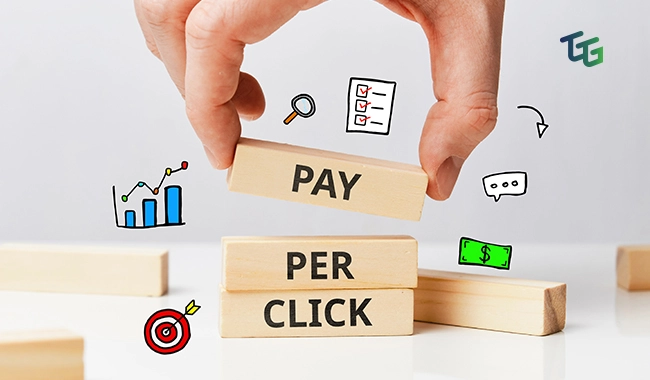Return on Investment (ROI) is a critical metric for any business, as it measures the profitability of investments. In the realm of digital marketing, Pay-Per-Click (PPC) campaigns are a powerful tool to drive traffic, generate leads, and ultimately, boost ROI. So, how can you maximizing ROI with PPC campaigns? Let’s delve into the intricacies of PPC and uncover strategies to enhance your investment returns.

Understanding PPC Campaigns
First and foremost, what exactly is PPC? Pay-Per-Click is an online advertising model where advertisers pay a fee each time their ad is clicked. Essentially, it’s a way of buying visits to your site, rather than attempting to “earn” those visits organically. Key components of PPC include keywords, ad copy, landing pages, and bid management.

Setting Clear Objectives
To maximize ROI, you must set clear objectives for your PPC campaigns. Start by defining your goals: Are you looking to increase website traffic, generate leads, or boost sales? Align these goals with your broader business objectives to ensure coherence and effectiveness.
Choosing the Right Platform
Selecting the appropriate platform is crucial. Google Ads is the most popular choice, offering extensive reach and robust tools. Bing Ads, though less ubiquitous, can provide a cost-effective alternative with a different audience. Social media platforms like Facebook, Instagram, and LinkedIn also offer PPC options, allowing you to target specific demographics.

| Point | Explanation |
| Google Ads | Google Ads is the most popular choice for PPC campaigns. It offers extensive reach, robust tools, and detailed analytics, making it ideal for businesses looking to target a broad audience. |
| Bing Ads | Although less ubiquitous than Google Ads, Bing Ads can be a cost-effective alternative. It reaches a different audience and often has lower competition, potentially reducing CPC (cost per click). |
| Facebook Ads | Facebook Ads allows for highly targeted campaigns based on user demographics, interests, and behaviors. It is especially effective for businesses aiming to engage with a specific community or interest group. |
| Instagram Ads | Integrated with Facebook, Instagram Ads leverage visual content to engage users. This platform is perfect for brands with strong visual elements, targeting younger demographics. |
| LinkedIn Ads | LinkedIn Ads are optimal for B2B marketing, enabling precise targeting of professionals based on job title, industry, and company size. It is a great choice for businesses seeking professional or corporate audiences. |
Keyword Research
Keywords are the foundation of any PPC campaign. Thorough keyword research ensures that your ads appear to the right audience. Utilize tools like Google Keyword Planner, SEMrush, or Ahrefs to discover relevant keywords with high search volume and low competition. Remember, the right keywords can significantly impact your ROI.
Creating Compelling Ad Copy
Crafting compelling ad copy is an art. Your headlines should be attention-grabbing, while the descriptions need to be persuasive. Highlight unique selling points, use action verbs, and include a strong call-to-action (CTA). Effective ad copy not only attracts clicks but also drives conversions.
Designing Landing Pages
The landing page is where the magic happens. It’s crucial that your landing pages are designed to convert visitors into customers. Ensure they are relevant to the ad, load quickly, and are mobile-friendly. Key elements of a high-converting landing page include a clear headline, concise content, strong CTA, and user-friendly design.
Budget Management
Effective budget management is essential for maximizing ROI. Start by setting a realistic budget based on your goals and financial capacity. Monitor your spend closely to avoid overspending. Tools like Google Ads’ budget planner can help you track and manage your budget efficiently.

Bid Strategies
Choosing the right bid strategy can make a significant difference. You can opt for manual bidding, where you control the cost per click, or automated bidding, where the platform optimizes bids to achieve your goals. Consider your campaign objectives, budget, and experience level when selecting a bid strategy.
Tracking and Analytics
Tracking and analytics are paramount for measuring the success of your PPC campaigns. Tools like Google Analytics, Google Ads, and third-party solutions provide insights into performance metrics such as CTR, conversion rate, and cost per conversion. These insights are invaluable for making informed decisions.
Common Mistakes to Avoid

Even seasoned marketers can make mistakes in PPC campaigns. Avoid overlooking mobile optimization, as a significant portion of users access ads via mobile devices. Ignoring negative keywords can also lead to wasted spend on irrelevant clicks. Stay vigilant and proactive in addressing these common pitfalls.
Conclusion
Maximizing ROI with PPC campaigns requires a strategic approach, from setting clear objectives and choosing the right platform to conducting thorough keyword research and continuous optimization. By implementing these best practices, you can ensure that your PPC efforts drive substantial returns on your investment.
Read more : The Rise of Influencer Marketing: How to Partner with Influencers
FAQs
PPC, or Pay-Per-Click, is an online advertising model where advertisers pay a fee each time their ad is clicked, essentially buying visits to their site.
Set a budget based on your campaign goals and financial capacity. Use tools like Google Ads’ budget planner to monitor and manage you spend effectively.
Effective strategies include thorough keyword research, compelling ad copy, optimized landing pages, proper budget management, and continuous A/B testing and optimization.
Utilize tracking and analytics tools like Google Analytics and Google Ads to monitor performance metrics such as CTR, conversion rate, and cost per conversion.

Alex Mitch
Welcome to my blog! With over 10 years in digital marketing , I’ve seen its incredible impact on smaller businesses. Join me as we explore how digital marketing can grow your audience and boost your business. Whether you’re an experienced entrepreneur or just starting out, you’ll find practical tips and insights to enhance your digital marketing strategies.





